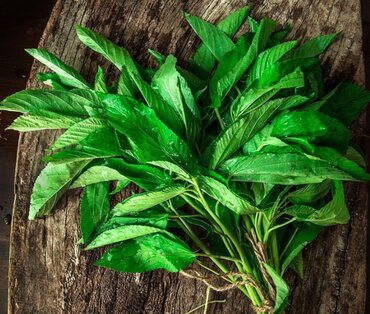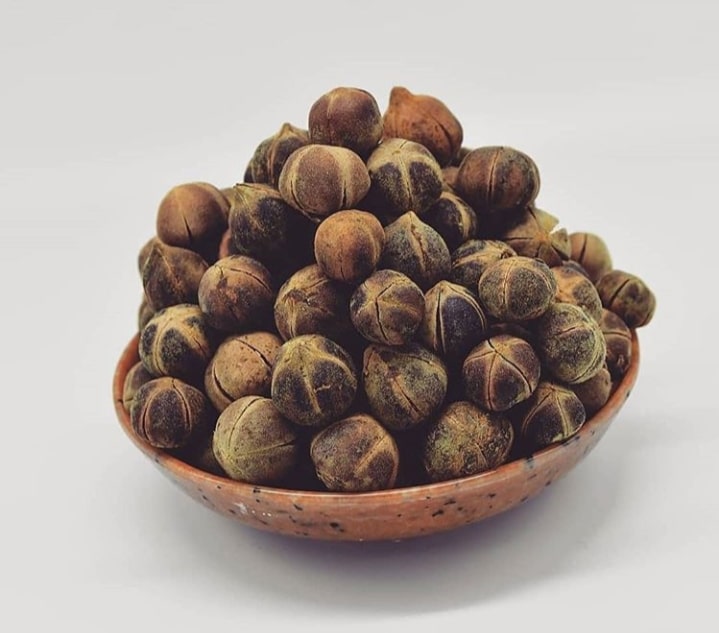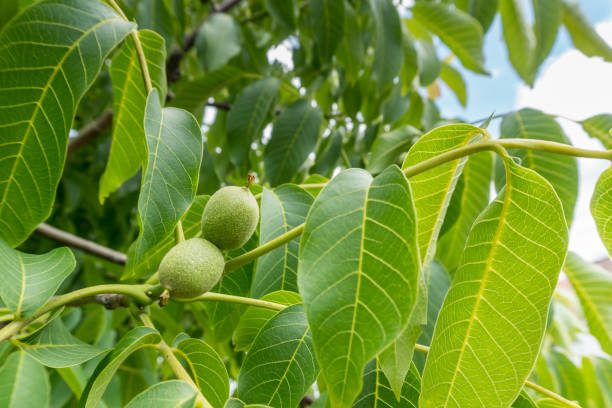Hibiscus is one of the common plants in the world. It is popularly known for its attractive and colourful flowers. It grows in tropical and subtropical regions like Thailand, Sudan, Nigeria, China, and Mexico.
In traditional medicine, hibiscus (also known as roselle or sorrel) has been used to treat high blood pressure, liver problems, and indigestion. It has been used for decorative, culinary, cosmetic, and medicinal purposes for centuries. It is used to make teas, extracts, supplements, jellies, syrups, sauces, and jams.
Every part of the Hibiscus plant, from the leaves to the stem, is beneficial to the health. In this article, we’ll discuss the benefits of Hibiscus leaves.
Nutritional Value Of Hibiscus Leaves
Hibiscus leaves are rich in Vitamin C, which is an antioxidant that helps boost your immune system and may aid in preventing cell damage caused by free radicals in the body. They contain anthocyanins which is also an antioxidant that prevents many chronic diseases.
Hibiscus leaves contain moderate levels of calories, fibers, sodium, iron, potassium, carbohydrates, Vitamin D and Vitamin B6.
7 Health Benefits Of Hibiscus Leaves

1. May help lower blood pressure
One of the benefits of hibiscus leaves is that they may aid in lowering blood pressure. High blood pressure causes an extra strain on the heart, and this weakens it. Hibiscus leaves contain antioxidant properties that help lower blood pressure.
A 2010 study showed that the consumption of tea made from hibiscus leaves lowered blood pressure in people with high blood pressure.
2. Great source of antioxidants
Antioxidants are molecules that help in fighting against free radicals, which cause damage to the cells in the body.
Hibiscus leaves are rich in antioxidants that may help fight against free radicals that might cause diseases in the body.
A 2011 study in rats showed that the extracts from hibiscus leaves increased the levels of antioxidants in the rats and reduced the effects of free radicals.
3. May help reduces cholesterol levels
Some studies show that hibiscus leaves extract may help reduce cholesterol levels which can cause heart disease.
A 2010 study showed that the consumption of hibiscus extract was associated with decreased bad cholesterol and increased good cholesterol.
4. Combats inflammation
Inflammation is associated to the development of many illnesses, such as cancer, asthma, Alzheimer’s disease, heart disease and rheumatoid arthritis.
Several animal studies and a few small human studies have demonstrated that hibiscus might be effective in fighting inflammation.
In fact, a 2016 study confirmed that hibiscus leaves possesed anti-inflammatory properties.
Although more research is needed, it seems that hibiscus leaves may offer helpful anti-inflammatory effects.
5. Destroys bacteria
Many scientific studies have shown that hibiscus leaves had the ability to inhibit bacterial growth and infection.
One study found out that hibiscus leaf extract was effective against eight strains of bacteria and even showed similarities to medications used to treat bacterial infections.
6. Aids in weight loss
Hibiscus leaves contain anthocyanins, phenolic compounds, and flavonoids, which aid in weight loss. Several studies have shown that hibiscus tea may be associated with weight loss.
A study on obese mice suggested that extract from hibiscus leaves may aid in weight loss.
7. May help to prevent cancer
Hibiscus leaves contain an antioxidant known as polyphenols, which have been shown to have anti-cancer properties. Cancer causes uncontrollable growth in some cells in the parts of the body.
A study showed that extract from hibiscus leaves prevented cell growth and reduced the spread of mouth cancer.
Bottom Line
Hibiscus is one of the common plants in the world. The leaves are one of the beneficial parts of the hibiscus plant. There are so many potential health benefits of hibiscus leaves. It is used for medicinal, culinary, cosmetic, and decorative purposes. It contains polyphenols which have anti-cancer properties.
It also contains anthocyanins which aid in weight loss and prevent obesity. It may reduce cholesterol levels. It may also help lower blood pressure.
YOU SHOULD ALSO READ:
- 7 Grand Health Benefits of Guava Leaves
- 6 Potential Health Benefits of Soursop Leaves
- 7 Captivating Health Benefits Of Monkey Kola
- 8 Potential Health Benefits of Pawpaw Leaves
- 8 Health Benefits Of Cashew Tree Bark
- 7 Potential Health Benefits Of Justicia Carnea (Ewe Eje)
- Morinda Lucida (Oruwo Leaves): Health Benefits and Effects
- 6 Health Benefits of Hog Plums (Iyeye Leaves)
- 8 Possible Health Benefits of Yam Leaves
- 7 Health Benefits of Osu Fruit (Hunteria umbellata)
- 11 Health Benefits of Ogirisi Leaves (Newbouldia laevis)
Collins Nwokolo is a human physiologist, writer and health enthusiast. He loves writing helpful articles on health and fitness, which he enjoys sharing with everyone.









